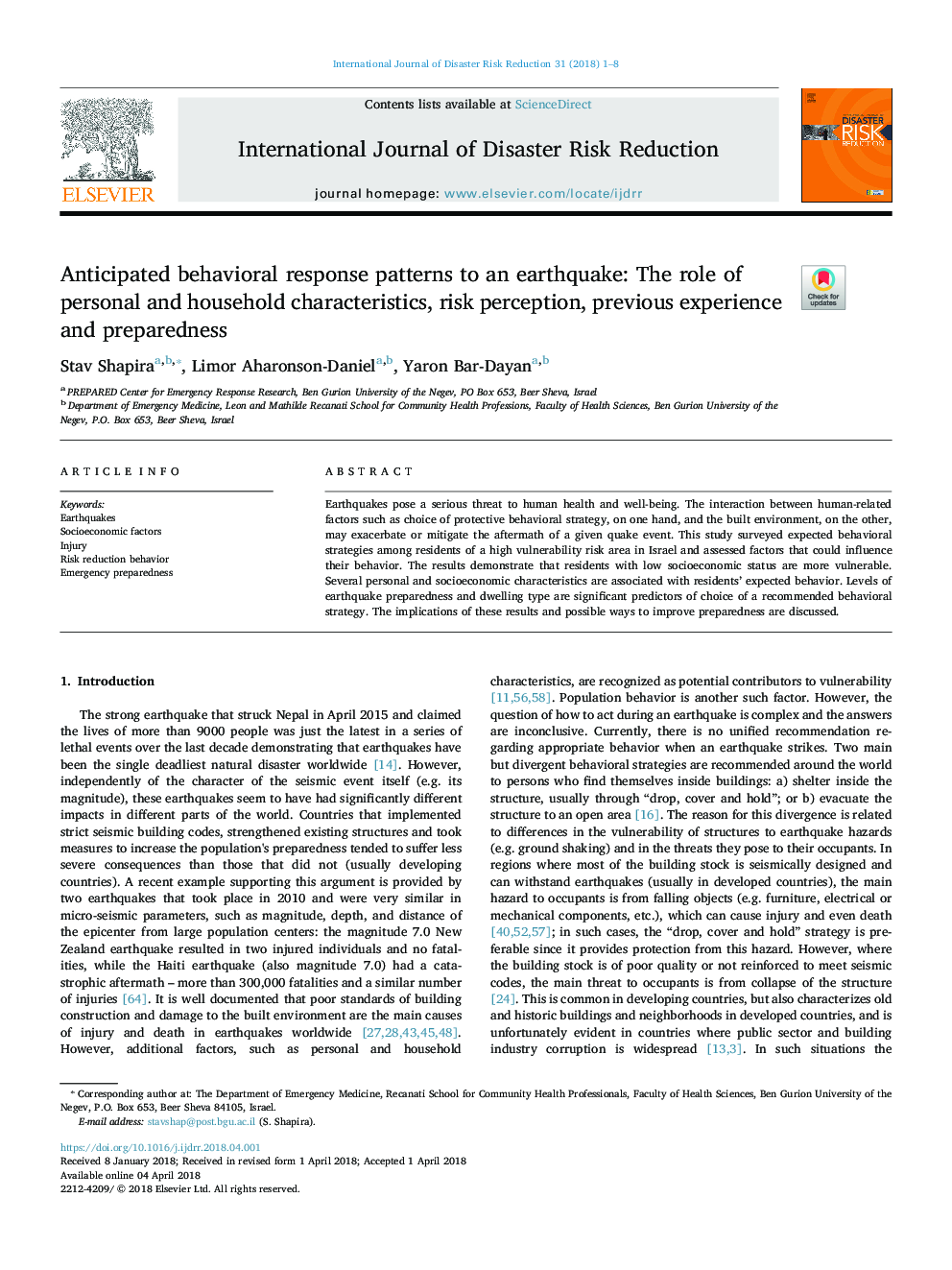| Article ID | Journal | Published Year | Pages | File Type |
|---|---|---|---|---|
| 7470961 | International Journal of Disaster Risk Reduction | 2018 | 8 Pages |
Abstract
Earthquakes pose a serious threat to human health and well-being. The interaction between human-related factors such as choice of protective behavioral strategy, on one hand, and the built environment, on the other, may exacerbate or mitigate the aftermath of a given quake event. This study surveyed expected behavioral strategies among residents of a high vulnerability risk area in Israel and assessed factors that could influence their behavior. The results demonstrate that residents with low socioeconomic status are more vulnerable. Several personal and socioeconomic characteristics are associated with residents' expected behavior. Levels of earthquake preparedness and dwelling type are significant predictors of choice of a recommended behavioral strategy. The implications of these results and possible ways to improve preparedness are discussed.
Related Topics
Physical Sciences and Engineering
Earth and Planetary Sciences
Geophysics
Authors
Stav Shapira, Limor Aharonson-Daniel, Yaron Bar-Dayan,
